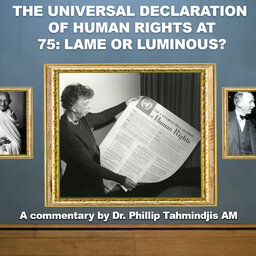Revolutionary or Evolutionary? Were Revolutions Necessary to Produce Human Rights?
This podcast considers revolutions in religion, society and politics, and some of the people involved in them, and their effects on the notions of rights.
The Reformation helped to detach notions of rights and the authority of the (Catholic) church from earlier notions of natural law. The Renaissance saw an increased focus on the individual. But the effects of these were neither consistent nor universal.
A revolution in England, while it helped sweep away the notion of the divine rights of kings, replaced it with the supremacy of a parliament to which only landed men could vote.
The revolutions in the United States and France, and their accompanying declarations of rights, did start a process of articulating and specifying what the rights of individuals could be, but were hedged in by political compromises (slavery remained legal in the United States until 1865) as well as by existing social mores (which downplayed women’s rights by relegating those away from the public sphere into the private).
There was an ebb and flow of rights; not an inexorable upward progression to human rights as we would recognise them today.
 THE UNIVERSAL DECLARATION OF HUMAN RIGHTS AT 75: LAME OR LUMINOUS?
THE UNIVERSAL DECLARATION OF HUMAN RIGHTS AT 75: LAME OR LUMINOUS?


